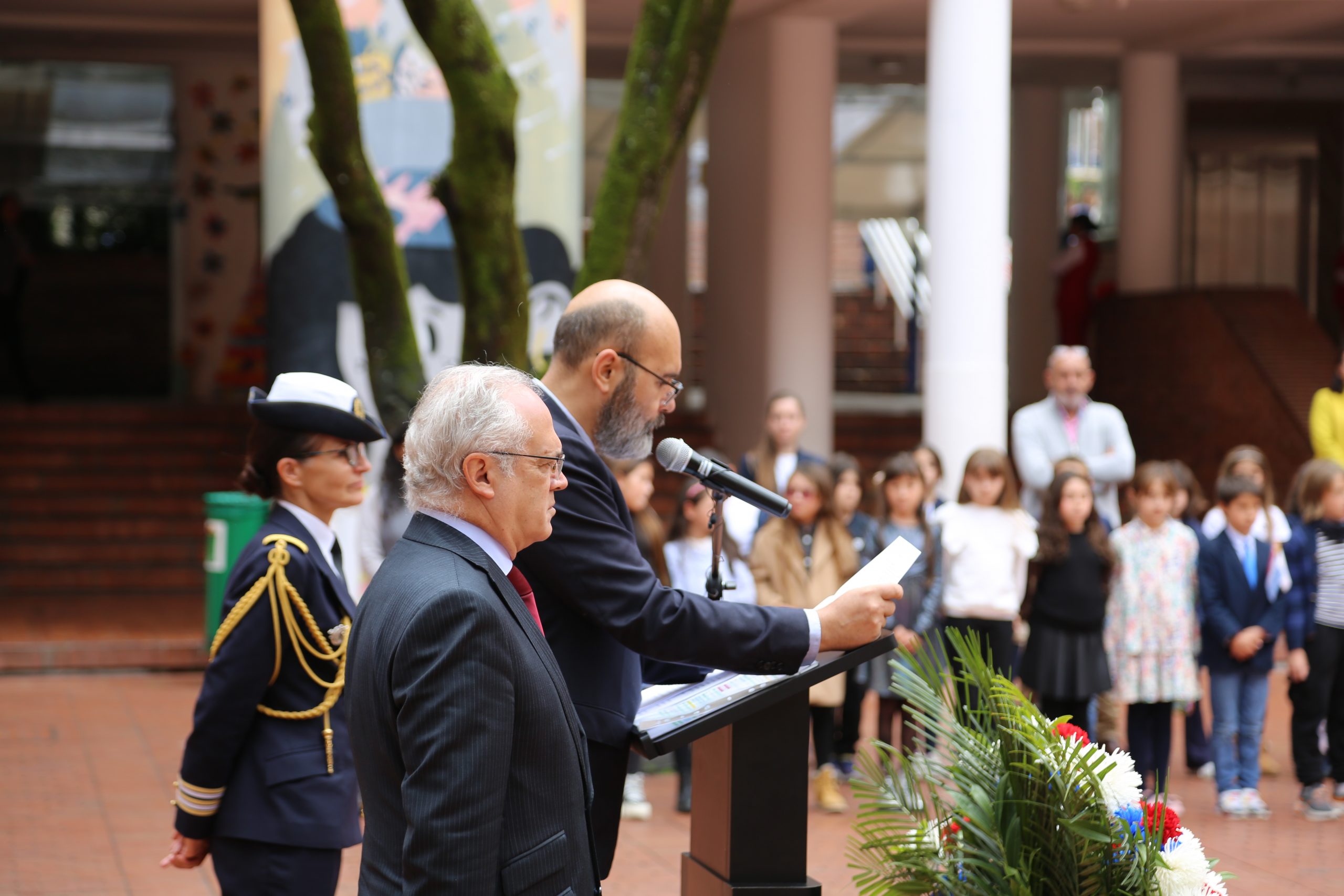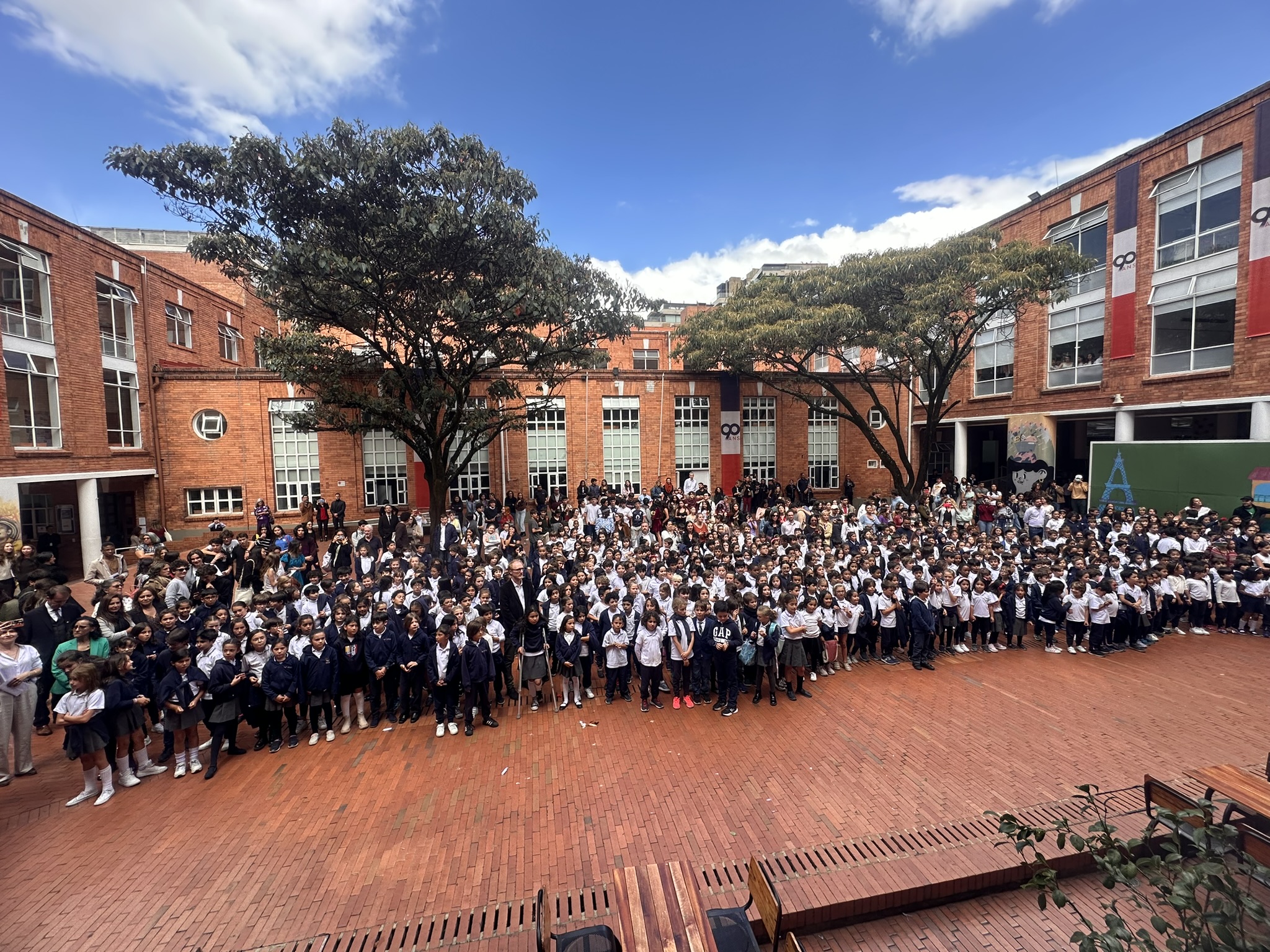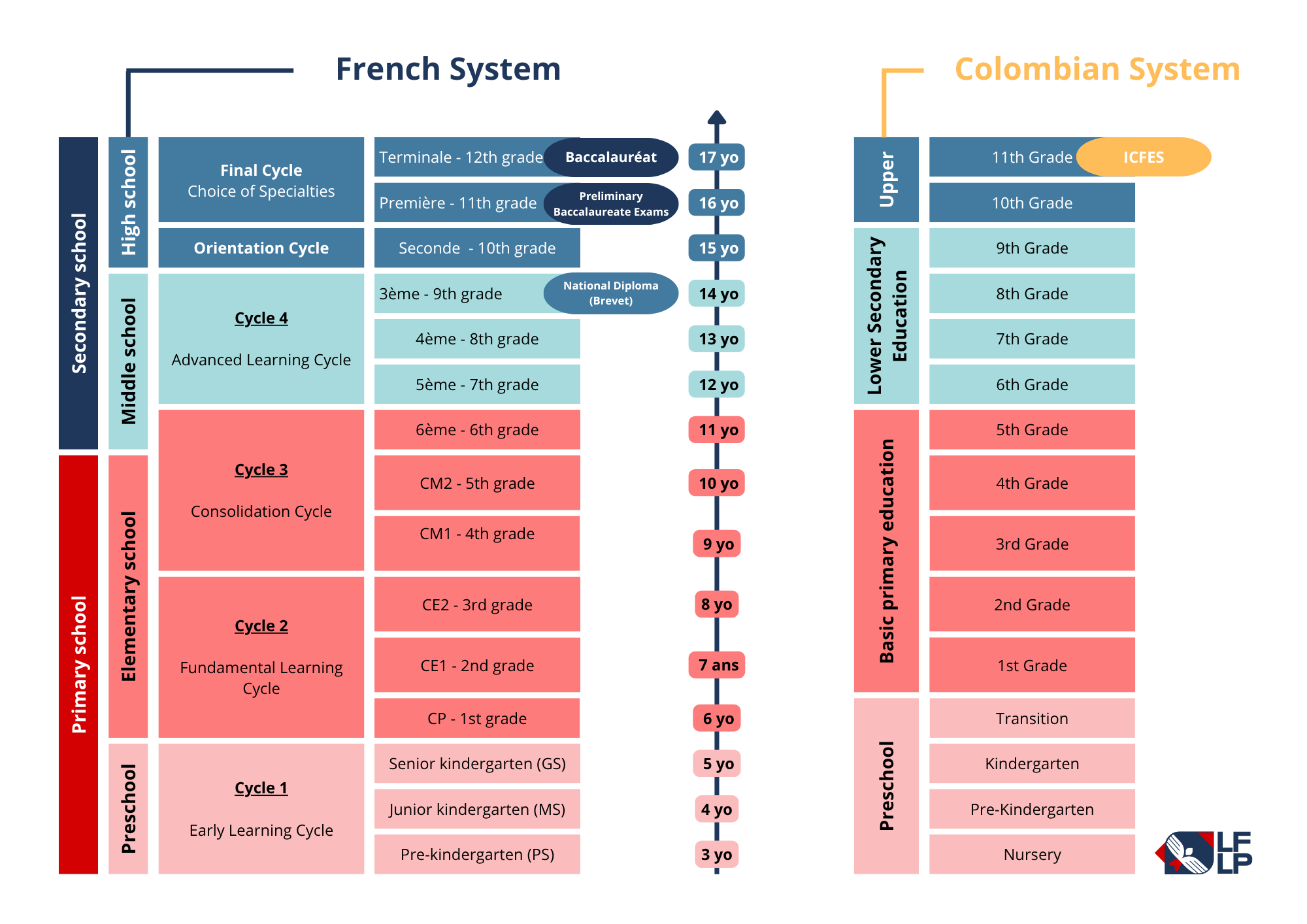About us
90 years of history and excellence in education.
History

90th Anniversary of the Lycée and awarding of the Croix de Boyacá
The President of the Republic of Colombia awards the Silver Croix de Boyacá during the celebration of the Lycée’s 90th anniversary.

80th Anniversary of the Lycée
80º aniversario del liceo.
70th Anniversary of the Lycée
In the presence of Mrs. Cecilia María Vélez, Minister of National Education, and Maryse Bossière, Director of AEFE.
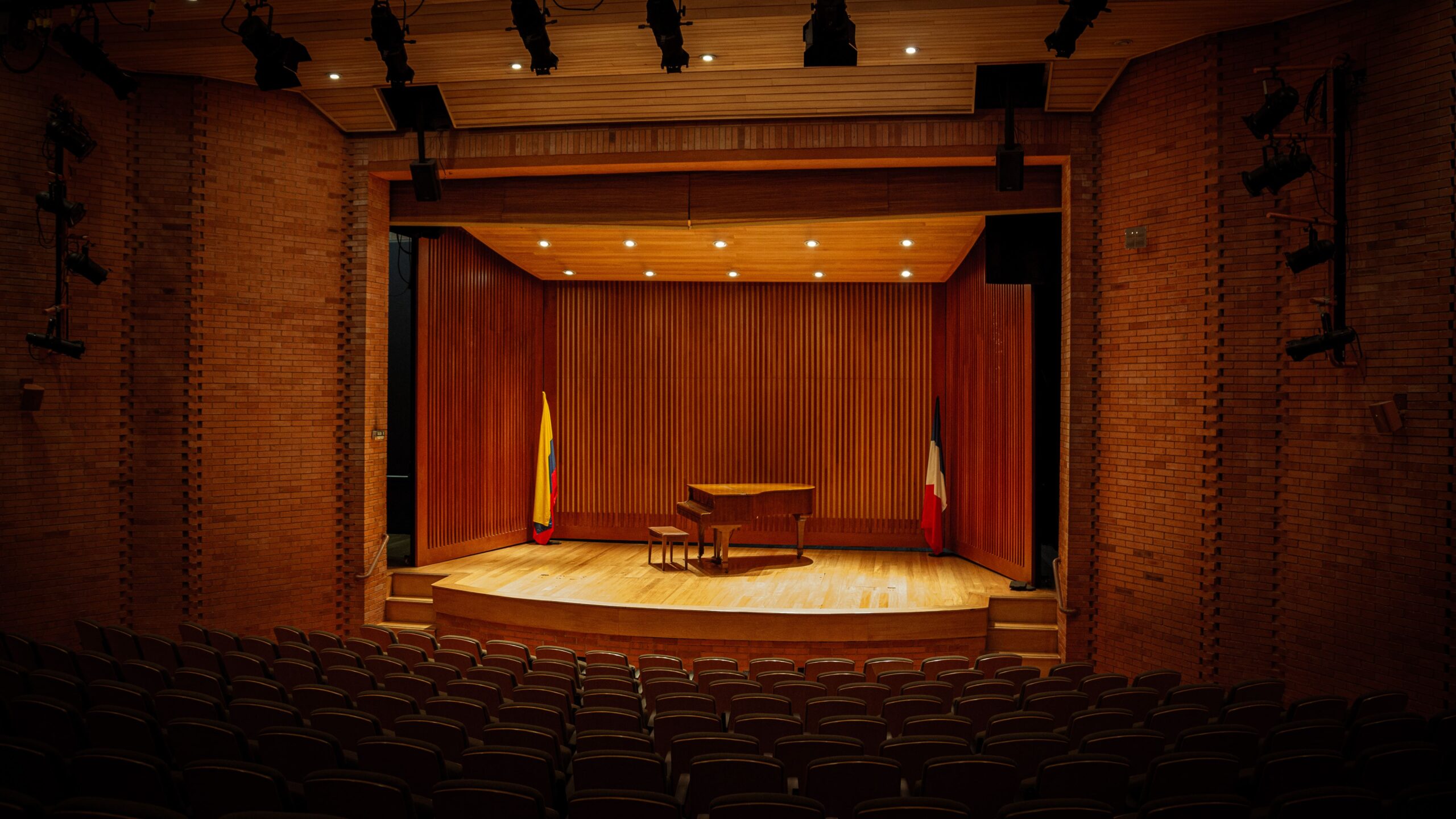
Inauguration of the auditorium
In the presence of Mrs. Cecilia María Vélez, Colombian Minister of National Education.
Visit to the Lycée by Mr. Dominique de Villepin, French Minister of Foreign Affairs.
Presidential and Nobel Prize visit
Visit to the Lycée by Mr. Andrés Pastrana Arango, President of the Republic of Colombia, accompanied by Mr. Georges Charpak, Nobel Prize in Physics laureate, whose children attended the Lycée Français Louis Pasteur.
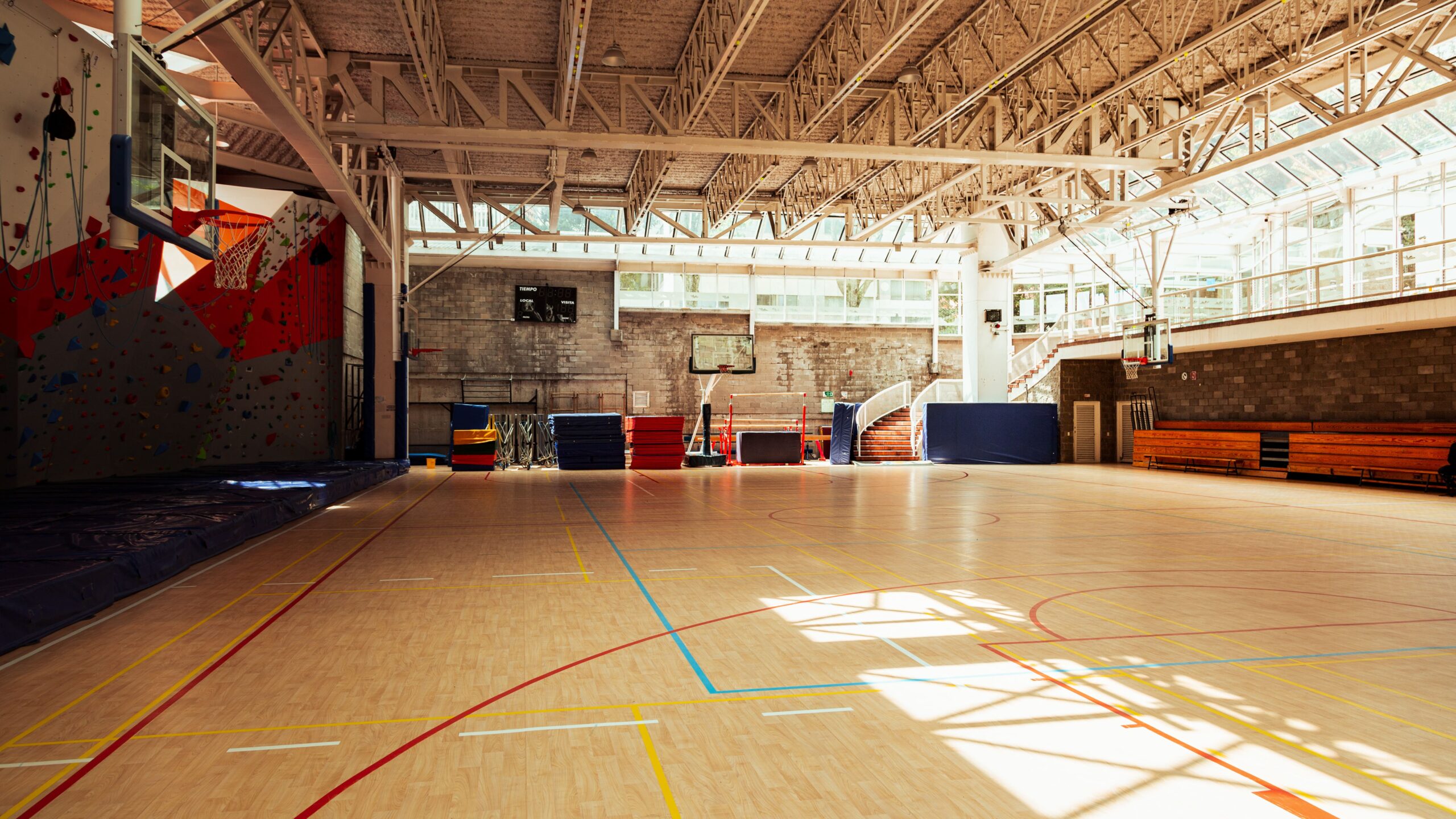
Inauguration of the gymnasium
In the presence of Dr. Jaime Niño, Colombian Minister of National Education.
60th Anniversary of the Lycée
Sixtieth anniversary in the presence of Mrs. Ana Milena Muñoz de Gaviria, First Lady of the Nation.
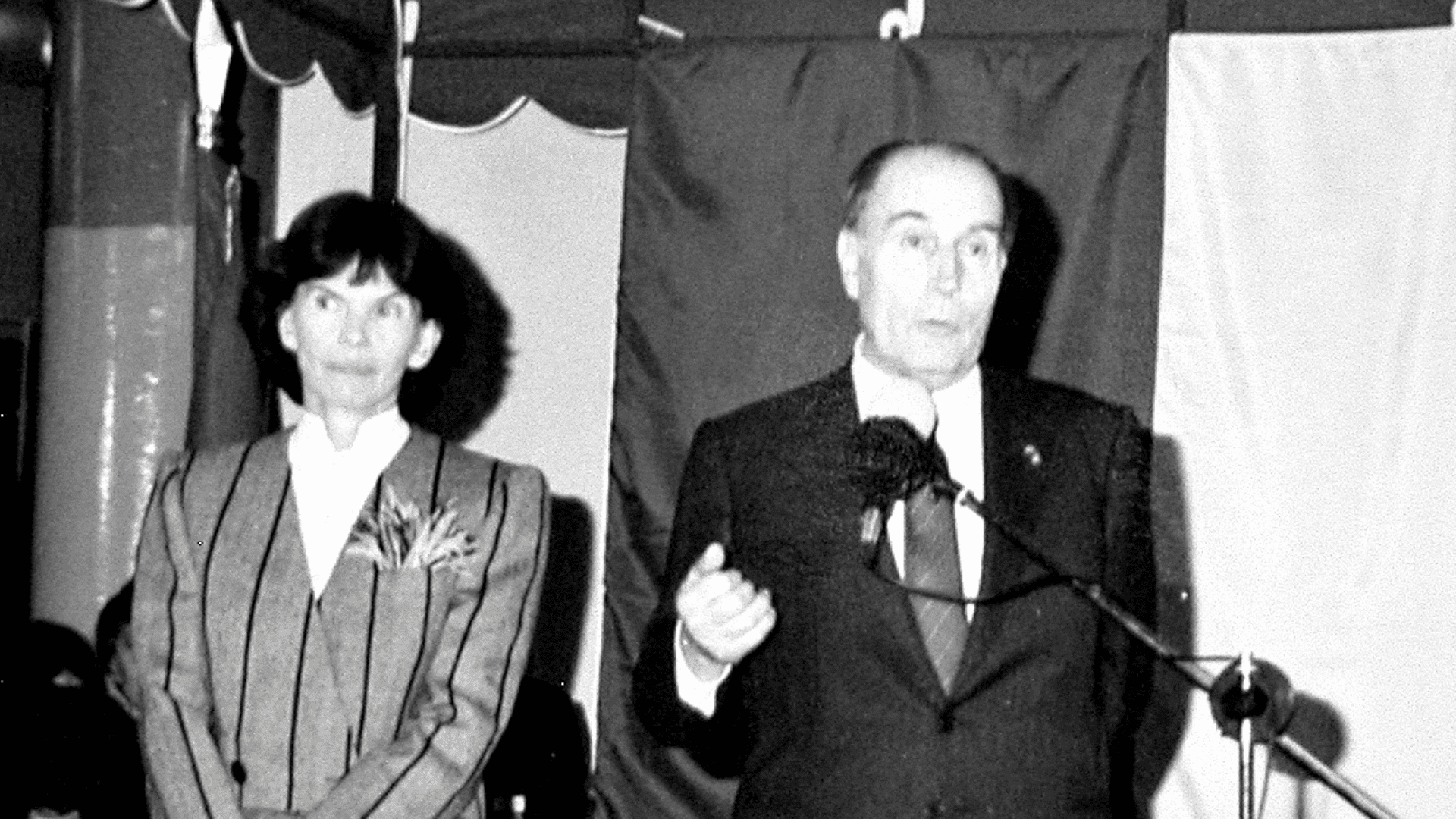
Visit to the Lycée by Mr. François Mitterrand, President of the French Republic.
50th Anniversary of the Lycée
Fiftieth anniversary of the school in the presence of Dr. Belisario Betancur, President of the Republic of Colombia.

Inauguration of the preschool building
In the presence of Dr. Juan Jacobo Muñoz, Colombian Minister of National Education.
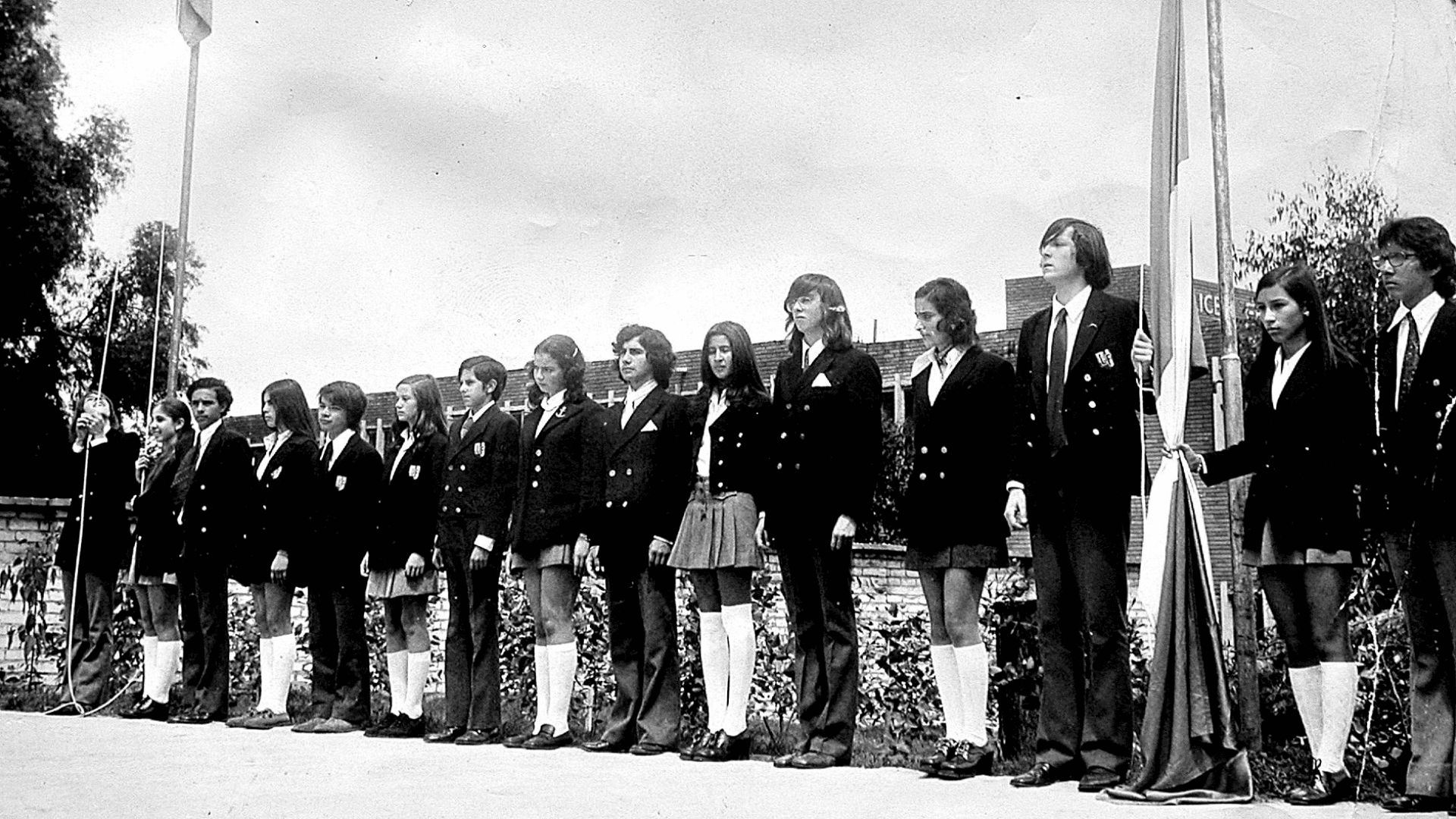
Inauguration of the new science laboratories
The first experimental teaching laboratories in the country at the time, in the presence of Dr. Carlos Lleras Restrepo, President of the Republic of Colombia.
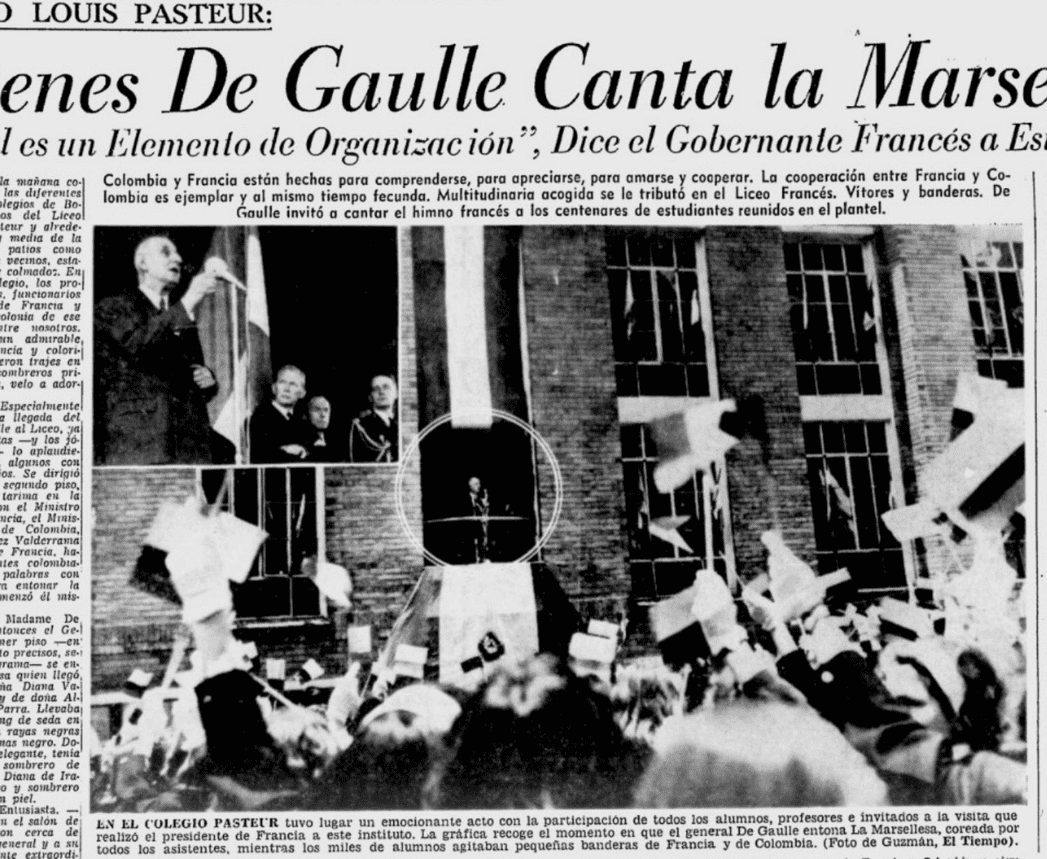
Visit to the Lycée by Charles de Gaulle, President of the French Republic and national hero.
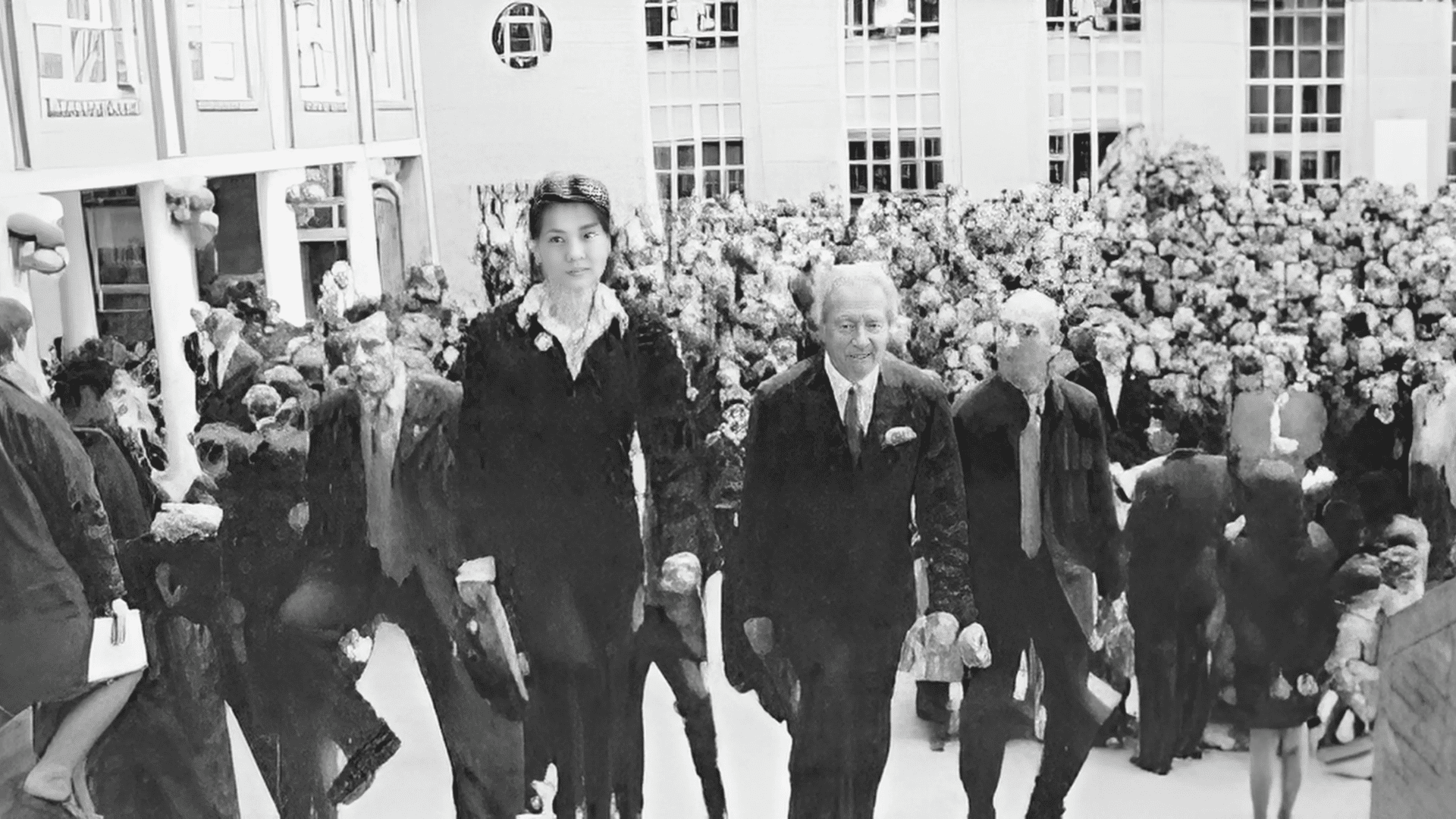
Inauguration of the current campus
In the presence of Dr. Ospina Pérez, President of the Republic of Colombia.
Officially named: Lycée Français Louis Pasteur.
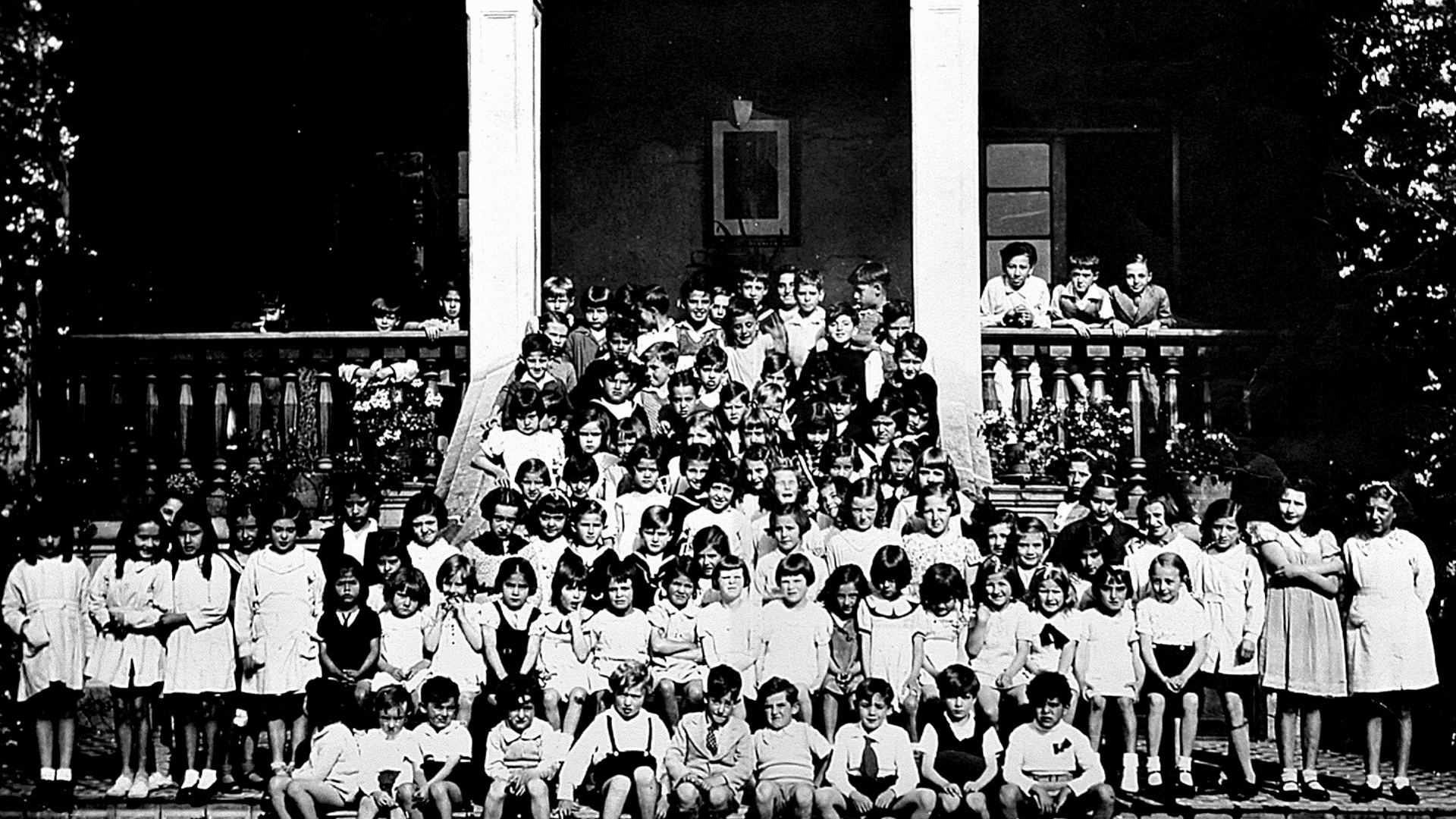
The French School is named after the universal scientist Louis Pasteur.
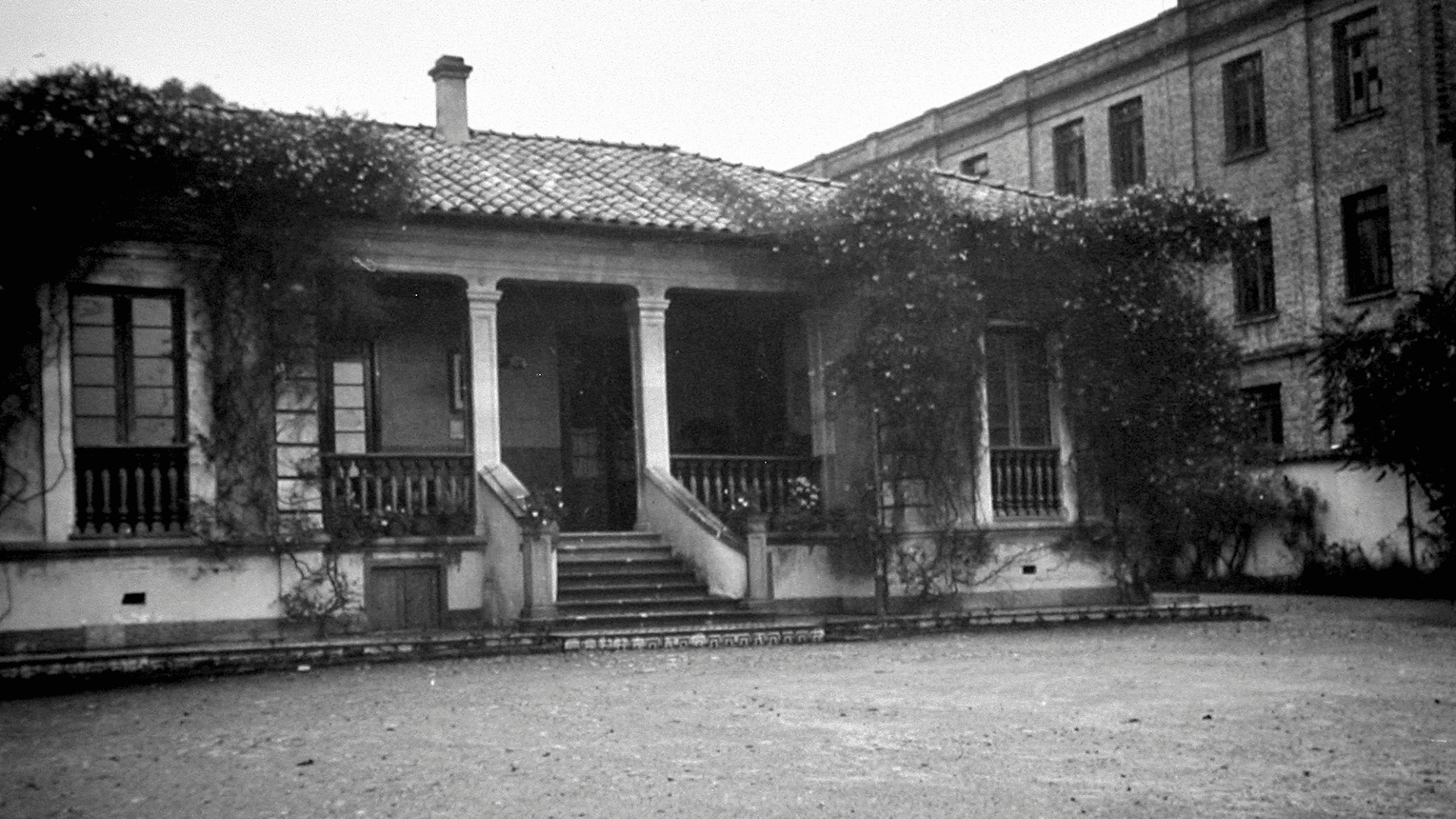
Relocation to the facilities at Carrera 7ª No 66-22.

Inauguration of the French School at Cra. 8 No 18-25.
Founded in 1934 by Colombians returning from France, the school offers a secular and humanist education based on the core values of tolerance, solidarity, respect, effort, and commitment.
The school today

AEFE
AEFE manages a worldwide network of over 600 schools in 138 countries with nearly 400,000 students, about 30% of whom are French. It guarantees high-quality education aligned with the French system, promoting French language, culture, and values through bilingual and multicultural training. AEFE also supports continuous teacher training and helps students integrate into the French educational system, preparing them to be responsible global citizens.
A Unique Network Worldwide
It is important to highlight this aspect, as it represents a major benefit of AEFE in a context of increasing international mobility. This network allows any child who starts schooling in France or one of the 600 French schools worldwide to continue their education seamlessly, even in the event of a change of country.
A Mark of Quality
The educational institutions within the AEFE network are accredited by the French Ministry of National Education. They must comply with strict pedagogical standards and school life regulations, which are regularly evaluated to ensure compliance and to provide the best educational environment for all students.
Committed Staff and Teachers
Teaching quality, student well-being, and development are agency priorities and key criteria for recruiting staff and teachers, whether from the French National Education system or other backgrounds, and whether French or from other nationalities.
French Pedagogy Focused on the Student
French pedagogy centers on the holistic development of the student, promoting critical thinking, autonomy, and respect for fundamental values. Through a rigorous and structured approach, it fosters the acquisition of solid knowledge and autonomous learning, preparing students for future challenges. Furthermore, this pedagogy adapts to individual student needs, ensuring personalized education that supports both academic and personal growth.

Regional Training Institute
In each of the 16 zones of the French international schools network, a Regional Training Institute (IRF) plays a key role in delivering, structuring, and coordinating training programs for network staff. It is a vital element in the network’s development dynamics.
AMLANORD Zone
The Lycée Français Louis Pasteur serves as a training center within the IRF for the Latin America Northern Hemisphere zone. This zone includes all Latin American schools that follow calendar B, corresponding to the northern hemisphere academic rhythm.
French Trainer Teachers
The school benefits from six French trainer teachers sent on assignment from France. Besides teaching their classes, they work with all schools in the zone to train teaching staff.
Part of AEFE’s Quality Seal
The IRF is an integral part of AEFE’s quality seal. It helps coordinate and standardize the training level of staff across all French institutions in the zone and organizes joint activities to enhance the academic offer for our students.
About us
Our facilities
Located in Bogotá’s prestigious La Cabrera neighborhood, the school offers historic yet constantly evolving facilities, combining tradition and modernity for an optimal learning environment.
The French Educational System
The French Educational System
The French educational system at Lycée Louis Pasteur Bogotá follows the principles and values of the French education model. It provides a comprehensive and high-quality academic education from preschool through the baccalaureate. With a rigorous and structured approach, the school promotes critical thinking skills, autonomy, and deep knowledge acquisition across various disciplines, preparing students to face the challenges of a globalized world.
Lycée Louis Pasteur offers a bilingual and multicultural environment where students not only master French but also benefit from cultural diversity, fostering respect, solidarity, and responsibility. This system aims to develop students with a strong academic foundation, capable of making significant contributions to society.
Three Main Educational Stages
The French educational system is divided into three main stages: primary education, middle school (collège), and high school (lycée), providing continuity up to university studies.
Primary School
French primary education is organized into three cycles:
Cycle 1 (ages 3 to 6): development of basic skills.
Cycle 2 (ages 6 to 8): reinforcement of fundamental knowledge.
Cycle 3 (ages 8 to 11): deepening in sciences, history, geography, and foreign languages.
This cycle-based approach allows for progressive and personalized learning tailored to each student’s pace.
Middle School (Collège)
The collège is the first stage of secondary education, accommodating students after primary school for four years (6e to 3e). The 6e year is part of the consolidation cycle 3, acting as a transition to reinforce previous learning and introduce secondary-level work methods. From 5e to 3e, students enter cycle 4, focused on knowledge deepening.
High School (Lycée)
After collège, students continue their education in lycée for three years: Seconde, Première, and Terminale. At the end of Seconde, students choose a specialization in the general pathway, preparing them for the French Baccalaureate or the French International Baccalaureate, and for higher education.

